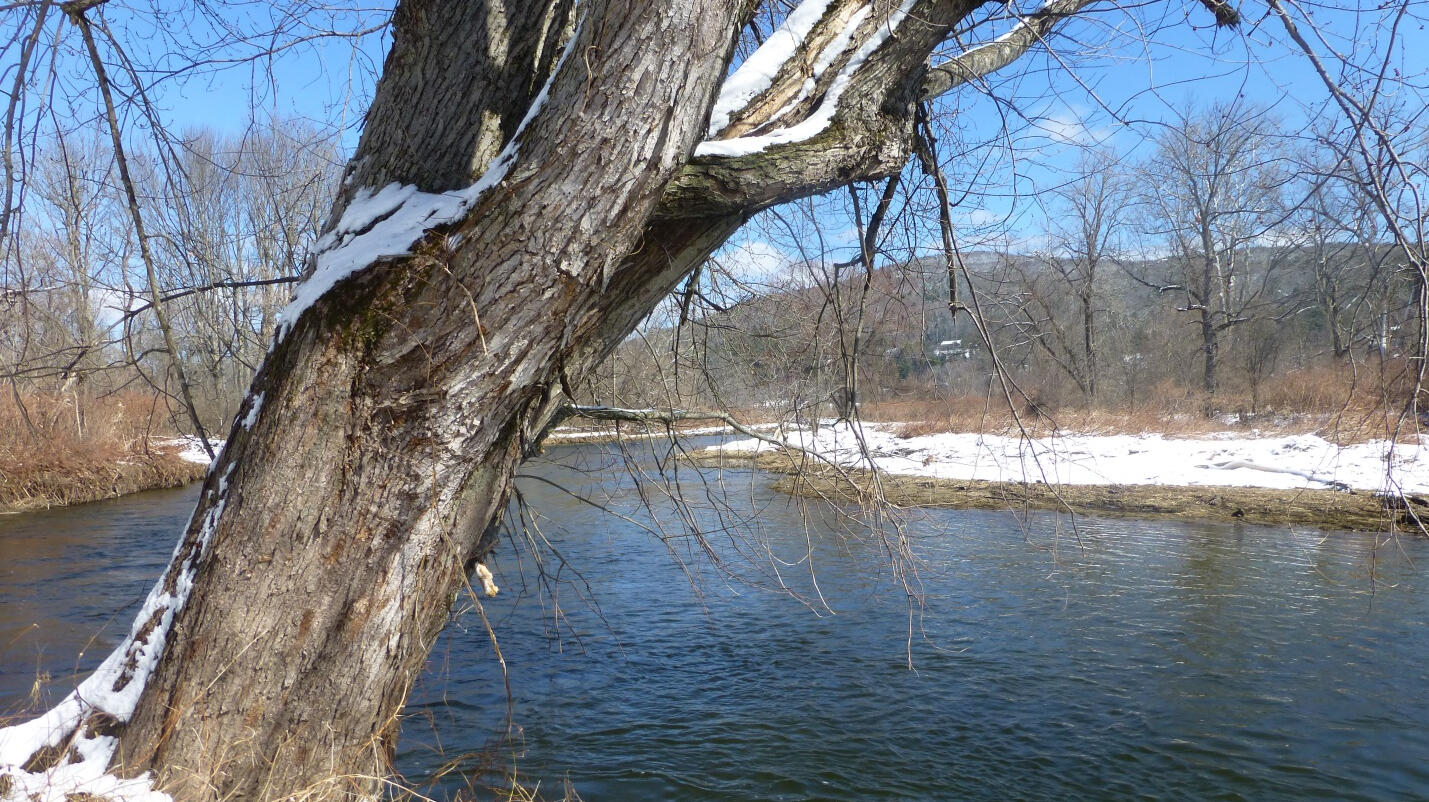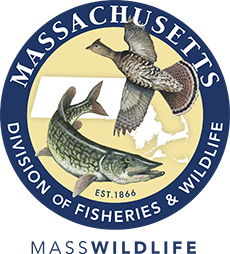- Division of Fisheries and Wildlife
Media Contact
Media Contact, MassWildlife

In 2018, MassWildlife added 103 acres to the Hop Brook Wildlife Management Area (WMA) in Lee. The addition—formerly owned by Country Curtains—includes 8,500 feet of frontage on both sides of the Housatonic River, in the vicinity of the mouth of Hop Brook. Conserving land along rivers like this helps protect rare species that live only in and near large rivers like the Housatonic.
Hop Brook WMA consists of seasonally flooded meadowland with swamp. The marshes along Hop Brook support many uncommon wetland species, including marsh birds, butterflies, and sedges. Eight rare animal and plant species rely on the area near and within the Housatonic floodplain to survive. These animals and plants—along with over 420 others—are protected under the Massachusetts Endangered Species Act (MESA). Acquiring this property assists with conservation efforts for each of these species, plus more.
The rarest of these eight species is matted spike-sedge. This small, annual plant grows on exposed mud flats along rivers and ponds in western Massachusetts. This sedge grows particularly well along the banks of the Housatonic River and Hop Brook. Protection of the river and brook will allow their natural movement side to side across their floodplains over the years, which will create new mud flats for the spike-sedge to colonize.
A healthy population of wood turtles inhabits the Hop Brook valley. Wood turtles are often crushed by vehicles, including tractors mowing hayfields. Protection of this property by MassWildlife will allow control of the timing and pattern of mowing of the fields here, reducing a significant source of mortality.
Another interesting rare species found at Hop Brook WMA is the ostrich fern borer moth. This moth is mainly found in flood-plain forests along rivers. Ostrich fern borer caterpillars bore into the stems of ostrich ferns in spring. They feed on the insides of the stems and roots all summer, finally pupating and becoming adult moths in the early fall. Exotic invasive plants such as Japanese knotweed often take over flood-plain forests, crowding out ostrich ferns. Without habitat management to remove invasive plants, ostrich ferns decrease, leaving ostrich fern borer caterpillars with no food source. Acquisition of this property will allow MassWildlife to manage invasive plants like Japanese knotweed here, if needed.
The eight species of rare animals and plants found in Hop Brook Wildlife Management Area are:
|
Common name |
Scientific name |
Status under the Massachusetts Endangered Species Act |
|
Matted spike-sedge |
Eleocharis intermedia |
Threatened |
|
Longnose sucker |
Catostomus catostomus |
Special Concern |
|
Twelve-spotted tiger beetle |
Cicindela duodecimguttata |
Special Concern |
|
Frank’s lovegrass |
Eragrostis frankii |
Special Concern |
|
Wood turtle |
Glyptemys insculpta |
Special Concern |
|
Bridle shiner |
Notropis bifrenatus |
Special Concern |
|
Ostrich fern borer moth |
Papaipema species, not formally described |
Special Concern |
|
Creeper |
Strophitus undulatus |
Special Concern |
MassWildlife owns and manages over 220,000 acres of land in Massachusetts. All Wildlife Management Areas and Wildlife Conservation Easements are open to hunting, fishing, trapping, and other outdoor recreation activities. Explore one of these properties close to you, or venture to another part of the state! Check out the MassWildlife Lands Viewer to get started.
